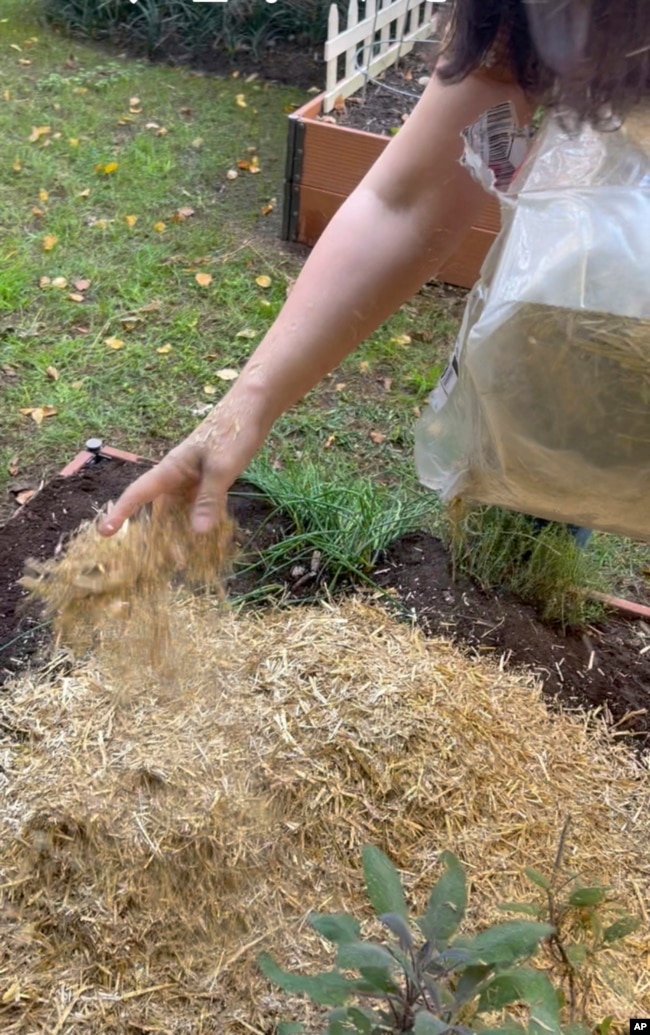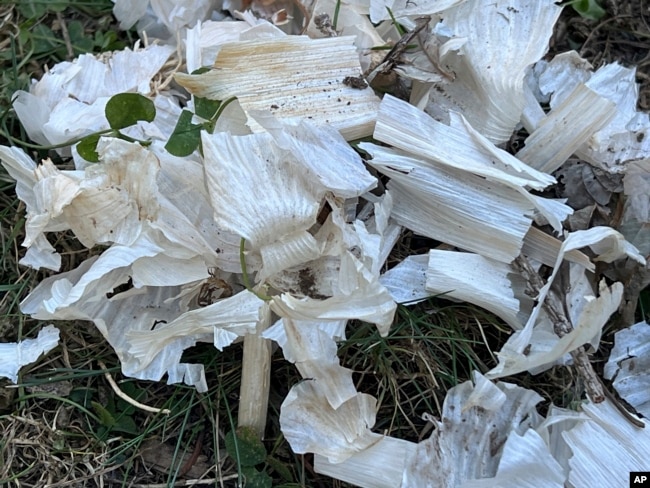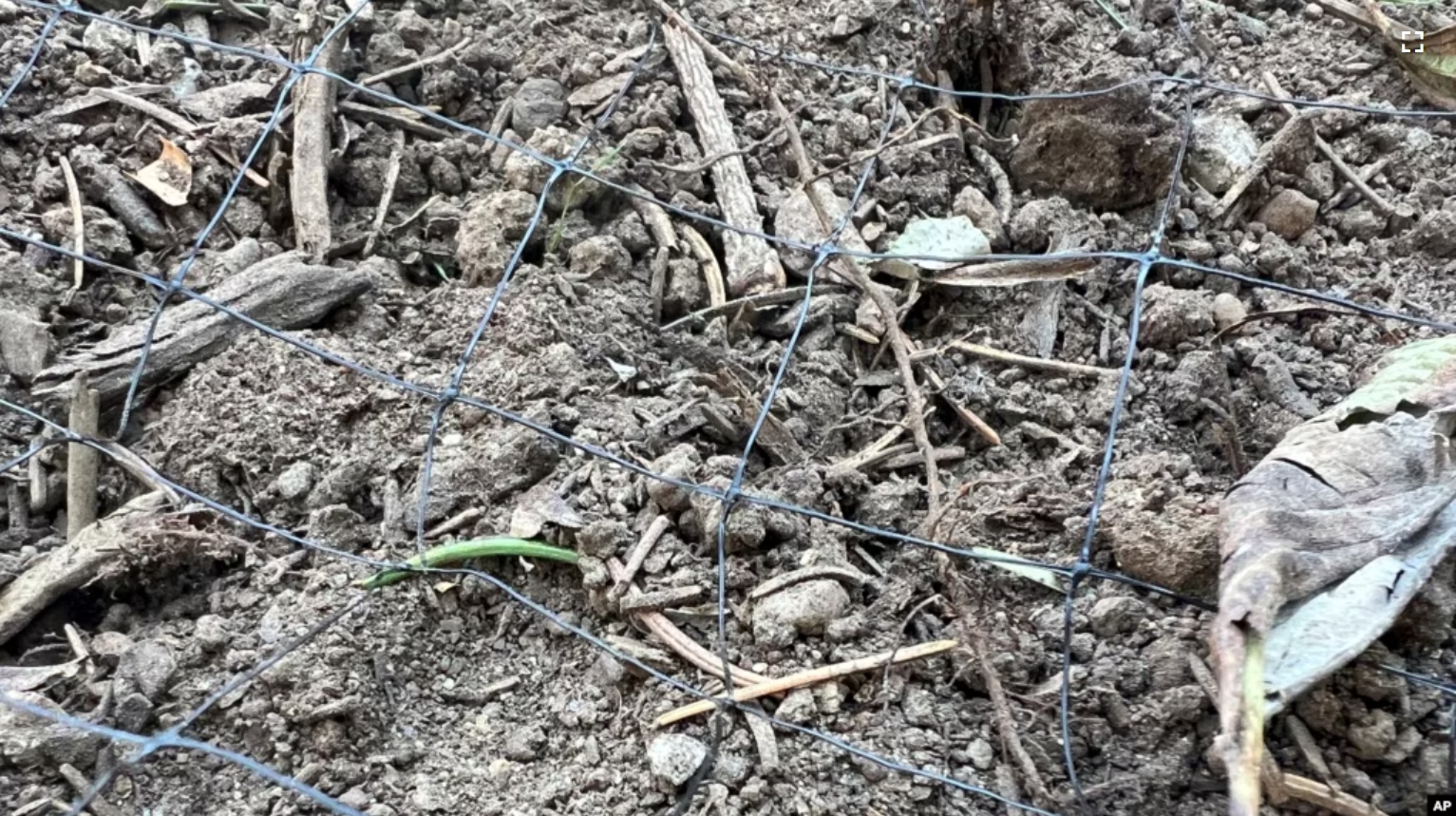It would not be autumn without planting advice from Associated Press gardening expert Jessica Damiano.
Damiano recently wrote about her experience planting garlic cloves. She was concerned not just about protecting them from low winter temperatures. She was worried that animals would dig up her bulbs and eat them.
Tulips, daffodils and garlic, for example, produce bulbs that bloom in the spring in places that have four seasons and cold winters.
To keep away animals, Damiano put netting over the soil and covered it with straw to a thickness of 10 centimeters.
She said this is good to do with any bulbs, especially ones like garlic, tulips and crocuses. That is because animals like to eat the bulbs of these plants.
Protecting bulbs
Netting or a kind of fencing called chicken wire can serve as a physical barrier that prevents animals from digging up plants. Such barriers do not block sunlight and water from reaching the soil. Damiano said they can be secured to the ground with pieces of wood or rocks. They can be removed in the spring.
Straw is a good mulch material that helps keep the temperature of the soil from changing too much. That can help avoid damage to plants caused by freezing and thawing conditions. It also keeps the soil from drying out. Protecting soil is important during the winter when cold dry weather can damage even the strongest plants.
Straw, hay, what is the difference?

Damiano said it is important to use straw, not hay, in your garden. Hay is animal feed. It contains tall grass, alfalfa, clover and other seeds that will cause problems in your garden.
She said straw is leftover material from crop harvesting. It is better because it has fewer seeds.
Damiano also said straw is less likely to contain chemicals used for insect control on crops. Straw is also good for other purposes around your house, the gardening expert noted.
Fertilizers and repellants
Damiano does not like to use some popular fertilizers such as bone meal, blood meal or fish fertilizers. She said hungry animals might find such fertilizers appealing.

She also advises not to leave parts of bulbs on the ground in your garden because they might be a sign to animals that there is food nearby.
There are many products meant to keep away animals that eat bulbs, which include squirrels, rabbits, chipmunks and others. Damiano does not use repellants because they must be must be replaced often. She said she does not like doing garden work when it is cold outside.
Some repellants can be used to treat bulbs before planting. But, she said, they wear off over time. Damiano considered a physical barrier like netting or chicken wire to be the best defense.
But, she added, the repellants and other methods can be effective so long as you are diligent.
I’m Mario Ritter, Jr.
Jessica Damiano reported this story for the Associated Press. Mario Ritter, Jr. adapted it for VOA Learning English.
______________________________________________
Words in This Story
clove –n. a segment, or part, of a plant bulb
bulb –n. the underground part of certain plants that produces leaves and flowers
bloom –v. to produce a fully developed flower
thaw –v. to melt from a frozen state
repellant –n. a substance that keep an animal such as an insect or a larger animal away because of some chemical property
diligent –adj. showing care, hard work and continuous effort
